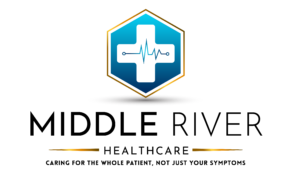Call us
HIV PrEP or nPEP treatment

The best defense against getting HIV is prevention. There are 2 types of prophylaxis (measures to prevent the transmission of HIV) to protect yourself:
PrEP: For people who are at substantial risk of exposure to HIV. To receive the HIV PrEP, you must test negative for HIV, hepatitis B and hepatitis C.
nPEP: For people who were exposed to HIV in the past 72 hours. nPEP is an emergency measure. It’s not intended for regular use by persons who may have frequent HIV exposure.
What are the 2 types of prophylaxis for HIV?
The best defense against getting HIV is prevention. There are 2 types of prophylaxis (measures to prevent the transmission of HIV) to protect yourself:
- PrEP: For people who are at substantial risk of exposure to HIV. To receive the HIV PrEP, you must test negative for HIV, hepatitis B and hepatitis C.
- nPEP: For people who were exposed to HIV in the past 72 hours. nPEP is an emergency measure. It’s not intended for regular use by persons who may have frequent HIV exposure.
What is HIV PrEP or nPEP treatment?
Human immunodeficiency virus (HIV) weakens the immune system by destroying cells that fight infections and diseases. Currently, there’s no cure such as a vaccine. HIV is manageable through medical intervention. Some population groups in the U.S. are more likely to get HIV than others because of factors such as sex partners and high-risk behaviors.
If left untreated, HIV can cause severe complications. A person with HIV must begin antiretroviral therapy (ART) as soon as possible after diagnosis. Early treatment with ART slows the progression of HIV and can keep a patient healthy for many years. Delaying treatment will cause the virus to continue to harm the immune system and develop acquired immunodeficiency syndrome (AIDS), which can be life-threatening.
What are the 2 types of prophylaxis for HIV?
The best defense against getting HIV is prevention. There are 2 types of prophylaxis (measures to prevent the transmission of HIV) to protect yourself:
- PrEP: For people who are at substantial risk of exposure to HIV. To receive the HIV PrEP, you must test negative for HIV, hepatitis B and hepatitis C.
- nPEP: For people who were exposed to HIV in the past 72 hours. nPEP is an emergency measure. It’s not intended for regular use by persons who may have frequent HIV exposure.
What are the risk factors for HIV transmission?
HIV transmission occurs only through activities where a person comes into contact with specific body fluids (breast milk, blood, semen, as well as pre-seminal, vaginal and rectal fluids). Most often, people get or transmit HIV through sexual activities and hypodermic needle or syringe use.
In the U.S., HIV spreads mainly through:
- Engaging in unprotected anal or vaginal sex with an HIV-infected person without using a condom or medicines to prevent HIV.
- Sharing hypodermic needles and syringes, rinse water or other equipment used to prepare drugs for injection with a person who has HIV. The virus may live in a used needle for up to 42 days.
Though far less common, HIV can also transmit under the following conditions:
- Mother to child transmission can happen during pregnancy, birthing or breastfeeding.
- Being stuck with an HIV-contaminated needle or other sharp object is a higher risk for health care workers.
- Oral sex can transmit HIV in extremely rare cases. Generally speaking, there’s little to no risk of getting HIV from oral sex unless there is contact with semen or other transmissive bodily fluids. HIV does not spread through saliva.
- The risk of contracting HIV from receiving contaminated blood transfusions, blood products or organ/tissue transplants, while technically possible, is minimal. This is due to rigorous testing.
How is HIV prevented?
- Correctly use condoms every time you have sex
- Limit your number of sexual partners
- Never share needles
- Pre-exposure prophylaxis (PrEP)
- Non-occupational post-exposure prophylaxis (nPEP)
- Abstinence (not having sex)
If you contract HIV, there are many measures to put into practice and prevent transmission to others, such as treatment with antiretroviral therapy.
How can a Middle River Healthcare provider help me with HIV?
Middle River Healthcare providers can assess if you’re eligible for PrEP or nPEP. They can order and review relevant lab tests. They can also prescribe medication and administer the appropriate treatment to prevent the transmission of HIV. After this, they can monitor your condition and follow up with more visits.

